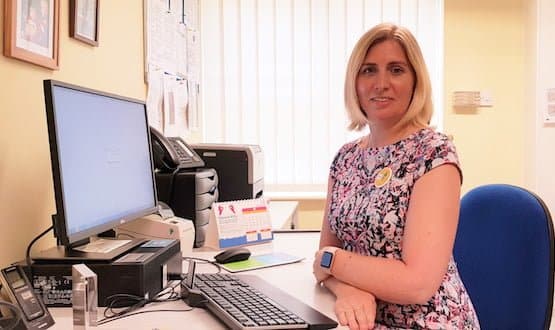Industry news in brief
- 31 May 2019

This month’s industry round-up features news that millions of NHS patients can now benefit from free Wi-Fi in hospitals and GP surgeries, while new research from OpenText has revealed only one in ten NHS trusts are fully digitised despite government plans for hospitals to be paperless by 2020.
NHS Wi-Fi available to millions of patients
Free NHS Wi-Fi is now available in 6,749 GP practices and 212 acute, mental health and community NHS Trusts across England.
Some 95% of GP practices and 98% of NHS trusts are already connected, with the remaining four trusts and ten CCGs all underway with their own procurements and set to be live this year.
The service allows patients to stay connected to friends and family using messaging services; empowers them to monitor and look after their own health better using digital health services; and keeps injured children entertained in A&E.
In a GP practice or hospital setting, patients are able to access information about their condition, treatment and prescriptions, which they can then discuss with their clinician.
Clinical staff can also direct patients to apps that can monitor their condition, or record information that is shared with their care team to support decision making.
Patients can access apps that help them communicate with medical staff to understand their health needs better using images, photos and text.
Child safeguarding systems reaches 100% roll-out in London
The Child Protection Information Sharing (CP-IS) system has reached 100% coverage in London for the first time, flagging young patients arriving at unscheduled healthcare settings to their social workers.
The project shares safeguarding information between health and children’s social care when a patient who is considered vulnerable and at risk turns up in an unscheduled NHS setting, such as an A&E or minor injury unit.
This can then trigger earlier interventions and enable appropriate action to be taken to prevent or reduce future harm happening to children.
Wendy Clark, executive director of product development at NHS Digital, said: “The Child Protection Information Sharing system is a fantastic example of using IT to provide interoperability across health and social care and enabling support services to protect young people who are most at need.
“It is now live in 142 local authorities providing an extra layer of protection for 180,000 of the most vulnerable children when they attend emergency and unscheduled health care settings in the NHS.”
The programme will be further expanded into primary care.
Only one in ten NHS trust fully digitised
Research from OpenText has revealed only one in ten of NHS Trusts are fully digitised, despite the Government’s plans for a paperless NHS by 2020.
This new data was obtained from a Freedom of Information request, issued to 74 NHS Trusts across the UK, with 52 responding.
In January 2019, the government announced the NHS Long Term Plan to address the healthcare system’s lack of interoperability, aiming to improve the quality of patient care and healthcare outcomes in the UK.
The plan requires all secondary healthcare providers to transition to digital records by 2023, ensuring clinicians can access and interact with patient records and care plans wherever they are.
Despite these guidelines, the new figures indicate there is still progress to be made – with just one third (37 percent) of responding Trusts stating that over half of their patient records are currently in a digital format.
In fact, only one in five (23 percent) of NHS Trusts confirmed that 76-99 percent of patient records – including scans, letters, notes and results – are currently digitised.
Mid and South Essex University Hospitals establish new patient flow centre
The Mid and South Essex University Hospitals Group (MSE) has established a new patient flow control centre to provide real-time visibility of bed status and balance anticipated demand with availability.
The 1150 sq ft control centre, which is operational 24/7, 365 days of the year, is located in Billericay and offers the hospitals group a centralised, holistic approach to bed management.
Underpinned by TeleTracking’s operational bed management platform, a dedicated team of 52 nursing professionals will have real-time visibility of open beds across its three sites, increasing access and allowing patient flow to be managed more effectively.
Clare Panniker, chief executive of the three trusts, said: “Traditional bed management processes are debilitating; nurses simply spend too much of their time chasing beds. Establishing the control centre is a chance for us to examine, understand and change the root causes of the problem, reduce bed wastage and improve patient access.”
In addition to providing real-time visibility of its beds, the TeleTracking platform also allows staff across the trusts to analyse operations, use predictive models to anticipate downstream demand, coordinate patient placement, sensor-track resources and patients, and adjust resources to changing circumstances in real-time.
Doctor Care Anywhere employs new messaging service
Online healthcare provider Doctor Care Anywhere has supercharged its service with digital messaging platform Docman Connect to enhance security and efficiency.
Doctor Care Anywhere, which covers over 200,000 patients currently and is on track to grow to over 1 million in 12 months, has reported an increase in the delivery rates of medical notes shared digitally from 55% to 85% in just six months following the implementation.
Docman Connect is an established healthcare solution acquired by Advanced, a British software and services provider which works with over 7,000 healthcare organisations.
It enables instant online clinical communication between care settings across the UK delivered in a secure and structured messaging platform. It’s now used by Doctor Care Anywhere to communicate with NHS GP surgeries.
James Harris, operations manager at Doctor Care Anywhere, said: “Before now, we had to fax or post patient records to GPs, which took up a lot of time. Now, if a patient asks us to share their appointment notes with their NPS GP, we can do so instantly, enabling the very best continuity of care.”
Study find telephone first approach for GP services doesn’t work for everyone
A new study from Cambridge Centre for Health Services Research found that a telephone first approach by GPs does not work for all patients.
In response to challenges facing GPs, some practices have adopted a ‘telephone first’ approach, in which every patient asking to see a GP is initially phoned back by their doctor on the same day.
At the end of this phone call the GP and the patient decide whether the issue needs a face-to-face consultation, or whether it has been satisfactorily resolved on the phone.
The study, which included interviews with 43 patients and 49 primary care staff in practices using the ‘telephone first’ approach, found wide variation in the views of patients and staff, both positive and negative.
The system clearly suited some patients, avoiding the need to visit the surgery, but was difficult for others for example, when it was difficult to take a call at work.
Just 9% of people trust robotics in surgery
Only 9% of people would prefer to undergo surgery carried out by a robot surgeon compared to a human, despite recent advances in technology, according to a new study from Northern Connectors.
The specialist distributor of industrial components also found 51% of people would still favour a human surgeon, as opposed to a robotic device.
The survey, which questioned 570 people about their opinions on recent medical advancements, revealed 73% of respondents said the “possibility of malfunction” was a concern, followed by the high cost of the machinery (56%) and a loss of jobs in the NHS (41%).
Scott Jones, general manager at Northern Connectors, said: “The use of robotic systems in surgical and medical applications is becoming more widespread, with ongoing advances in the technology likely to make this even more common in future.
“However, the findings of our survey suggest there is still a long way to go when it comes to trusting machinery to carry out work typically performed by humans.”




